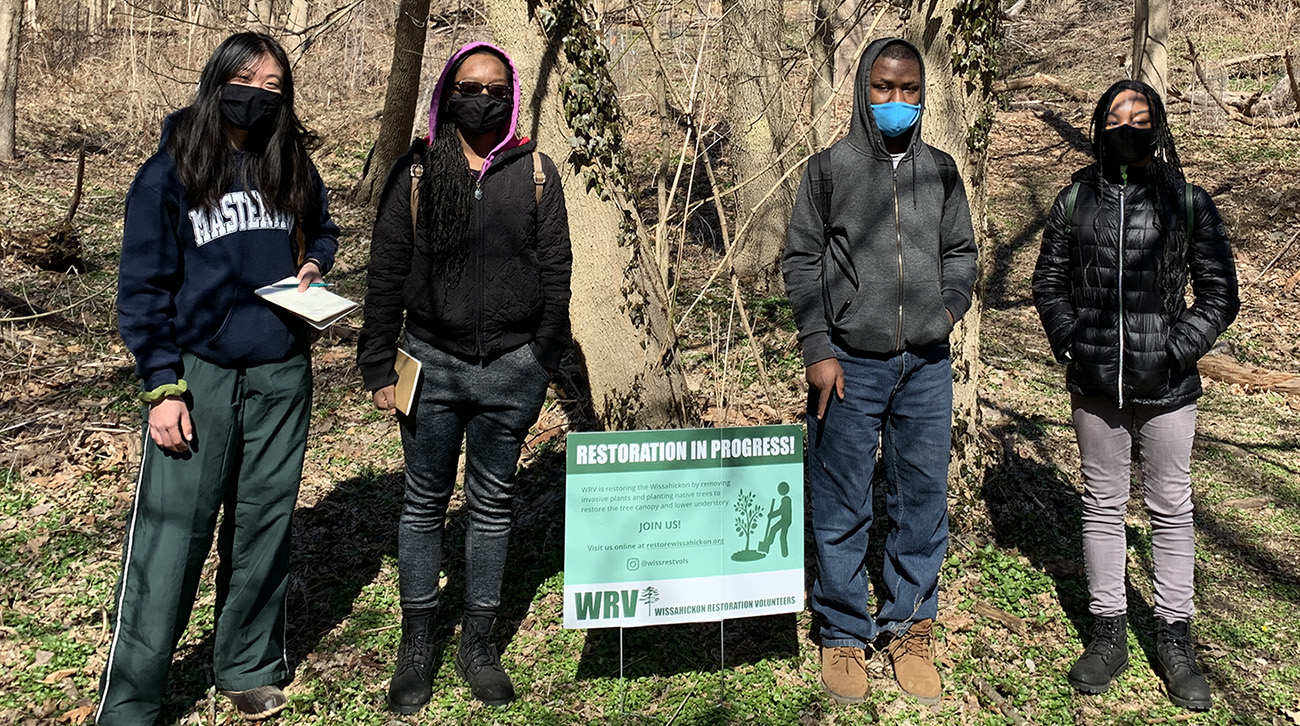
Above: High school students Annetta, Nia, Christian, and Imani are forest stewards in training.
In an effort to encourage young people to get involved in urban ecology and to cultivate leaders and volunteers that reflect the diversity of Philadelphia, WRV has launched the Ecological Restoration Leadership Program (ERLP). The program offers Philadelphia high school students the opportunity to learn about and lead ecological restoration work in the Wissahickon and become “forest stewards.”
The participants were selected after having completed the Philadelphia Watershed Stewardship program at LandHealth Institute, where WRV President Steve Jones is Nursery Operations Director. “The participants will get a chance to expand beyond water stewards to learn to be stewards of the forest,” said Jones.
The goal of the training program is to prepare candidates to assist in the stewardship and restoration programs of Wissahickon Restoration Volunteers. Successful trainees, or forest stewards, will be prepared to help lead restoration work groups under WRV’s supervision and work on their own on the maintenance of WRV restoration sites.
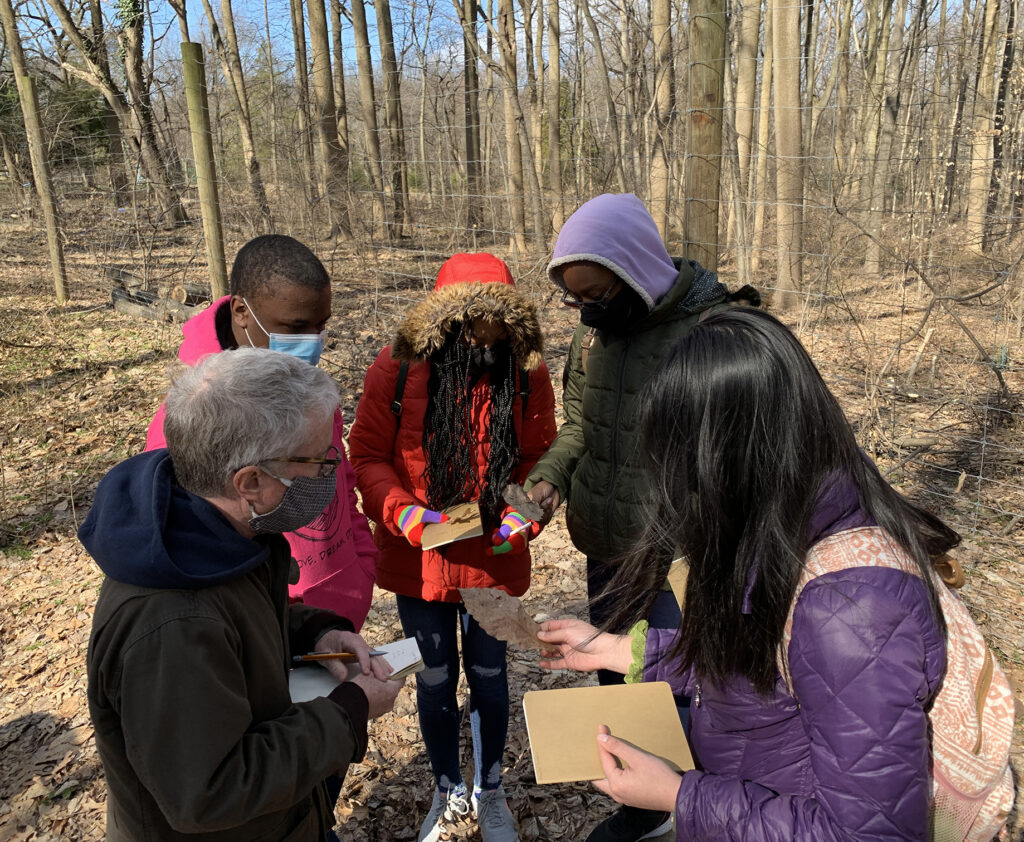
WRV instructor Steve Jones and stewards-in-training search for winter tree identification clues in the Wissahickon.
The stewards are supplied with materials and are paid a stipend for their training and for helping to lead volunteer groups. The program includes 24 total hours of paid classroom and field training, and 16 hours of paid stewardship work in the field.
“We like the idea of connecting material benefits to learning about ecology,” said Jones. “The students treat the training and the help with leading groups as a job, and we think that is great preparation for life after high school.”
In the first part of the course students learn about the geologic history and social history of the Wissahickon Valley. This includes the contrasting ways that indigenous and European people made use of the Wissahickon as a resource. Understanding the Wissahickon’s industrial past, and its role in protecting water quality is an important aspect of stewardship.
Students also learn about specific forest habitats, which are the restoration “targets” for WRV projects. This includes understanding different forest plant associations, forest structure, and the impacts of human activity on urban forests. The stewards are also trained in WRV’s particular approach to re-introducing native plants as the foundation of restoration, along with discouragement of invasive plant populations.
There is a significant amount of reading and field trips, and students are responsible for presenting what they have learned in every class meeting. So far, the training has been a hit with both the students and WRV staff.
“I think it’s really great to get the high school students out in the Wissahickon,” said WRV board member Ian Schramm, who has assisted in the steward training. “They’re so curious and absorbing so much information. What they are learning now is the foundation for once we start digging in the dirt and removing invasives and planting. I’m really looking forward to working with them on our restoration projects.”
Meet the WRV Forest Stewards
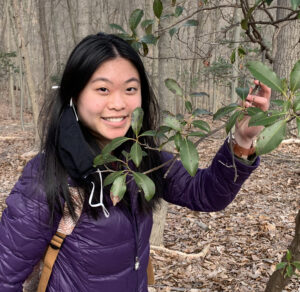 Annetta Y
Annetta Y
Junior at Julia R Masterman High School
“I graduated from PWS [Philadelphia Water Stewards at LandHealth Institute] and when I heard about this program, I thought why not because PWS was fun. I have never been to the Wissahickon before this so this gave me a chance to explore.
I think it’s great so far! My favorite parts of the training are the hikes, and how to identify different trees.
I would recommend this program, you learn something new every day, you get to spend time outdoors, you get to meet new people. It’s a great way to connect with nature.”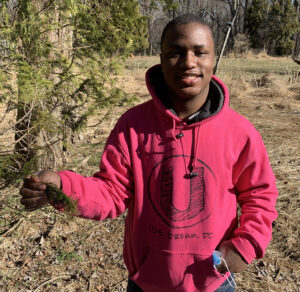 Christian K
Christian K
Junior at the U School
“I like the program, it’s pretty cool! I’m learning a lot about tree identification. The field trips are cool because we get to go different places and see different things. I like that I get to explore the world around me.
My favorite thing so far has been learning about types of trees.”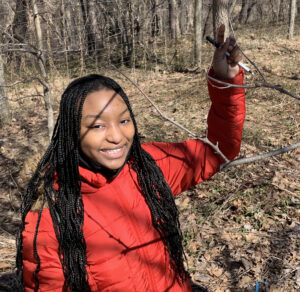 Imani M
Imani M
Junior at Mastery Charter Lenfest Campus
“I like this program! We are learning how everything grows and how to identify trees by looking at the leaf, the twigs and how the buds grow. I have learned how to tell if an oak is part of the red oak family or white oak: if leaf edges are pointed at the side, it’s red, and of the leaf has rounded edges, it’s white.
I would highly recommend this program because you get to go out and learn more in depth about how trees grow and which tree is which. I like being outside.”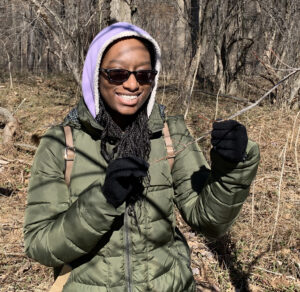 Nia M
Nia M
Junior at Mastery Charter Lenfest Campus
“This program is really nice. I learned a lot about plants I didn’t really know before, and I also learned about invasive plants that are in the Wissahickon and how they are taking over and hurting our environment. We need to bring back plant diversity in the Wissahickon.
I would definitely encourage others to join this program. Not only is it a good experience and a good way to learn about your environment but you also learn about how you as a person can give back to your community.”
The forest stewards are now completing their training and will work on restoration projects through spring and into summer. WRV is planning to offer the program next year when it will be open to any young Philadelphians who have already completed some kind of organized hands-on ecology program.
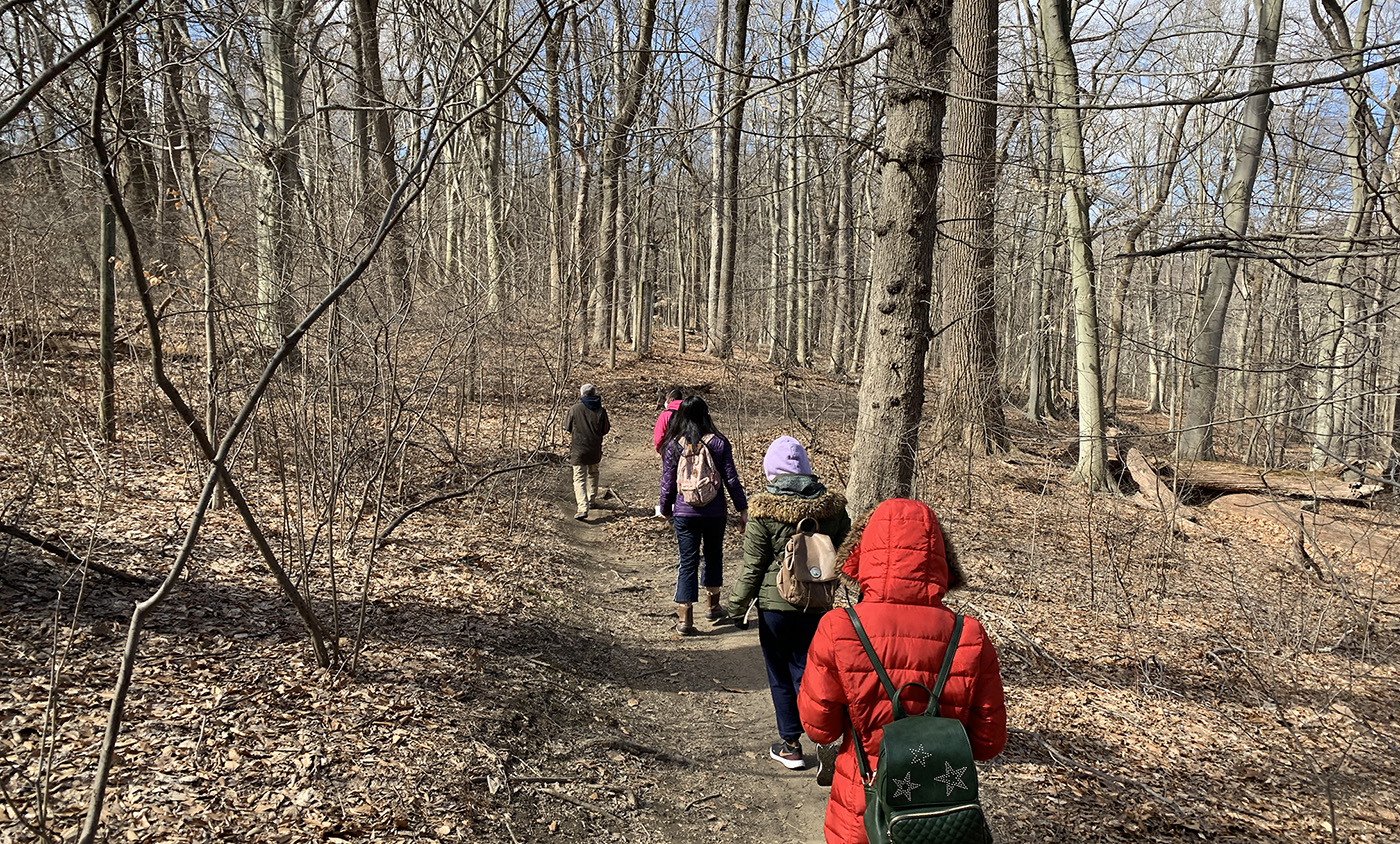
Thank you for reading! Please consider supporting our work. Your donation will help keep the Wissahickon green and diverse, and all donations are Tax deductible.

